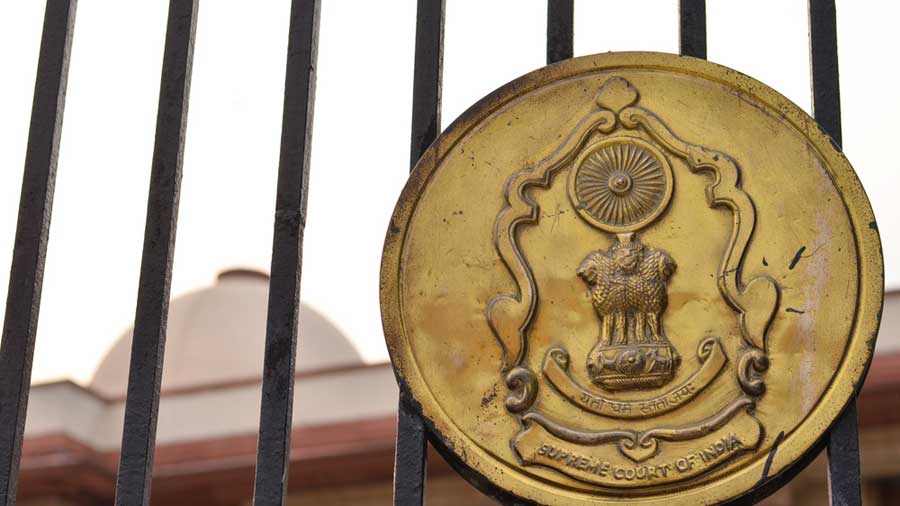
Plea to reinstate adultery law for military - to keep the armed forces outside the ambit of a 2018 judgment decriminalising adultery under the Indian Penal Code.
The Centre said discipline was the bedrock of the services and there would be 'instability' within the forces if adultery was not made a criminal offence

The government argued that personnel of the army, navy and the air force often serve in inhospitable conditions and it had to be ensured that they “perform their duties without unnecessary concern for their families”. The Centre said discipline was the bedrock of the services and there would be “instability” within the forces if adultery was not made a criminal offence.
The government said that when jawans and officers are posted in forward inhospitable areas, their families are taken care of at base camps by other officers, and the laws and rules providing for action for indulging in adulterous or promiscuous activities help in maintaining discipline. An armed forces member can be cashiered from service on grounds of unbecoming conduct for committing adultery with a colleague’s wife, the government said.
A bench of Justices R.F. Nariman, Navin Sinha, and K.M. Joseph admitted the Centre’s plea and referred the matter to the Chief Justice of India for constituting an appropriate five-judge bench to examine the issue.
In 2018, another five-judge constitution bench had struck down as unconstitutional IPC Section 497 that made adultery a criminal offence but exempted the women from punishment. The bench had said the adultery law discriminated between man and woman, besides being an intrusion into a citizen’s private life. It said the law dented the individuality of women and treated them as “chattel of husbands”.
The apex court, in the September 2018 judgment, had, however, said that adultery would continue to be a ground for seeking divorce in matrimonial disputes. The court had also held that adultery was undoubtedly a moral wrong as far as the family and the spouse were concerned.
The department of military affairs under the defence ministry, told the court on Wednesday through attorney-general K.K. Venugopal that the 2018 judgment could cause instability within the armed forces “…as defence personnel are expected to function in peculiar conditions, during the course of which many a time they have to stay separated from their families for long durations, when they are posted on borders or other far-flung areas or in areas having inhospitable weather and terrain”.
“The support system to families is provided by the creation of ‘Field Area Family Accommodation’, where families are cared for by local formations and units while their spouses are away serving in forward locations, very often in combat situations. To ensure that all personnel perform their duties without unnecessary concern for their families, there is a system where frequent visits to families living away from their spouses by officers/JCOs, is a regular feature.
“In view of the aforesaid judgment, there will always be a concern in the minds of the army personnel who are operating far away from their families under challenging conditions about the family indulging in untoward activity,” Venugopal submitted.
According to the Centre, discipline is the bedrock of the work culture in the defence services and an essential ingredient for combat operations. Accordingly, the framers of the Constitution had authorised Parliament under Article 33 to restrict or abrogate certain fundamental rights in their application to the armed forces so as to ensure proper discharge of duties and maintenance of discipline.
“…One has to remember that the armed forces exist in an environment wholly different and distinct from civilians. Honour is a sine qua non of the service. Courage, and devotion to duty, even at the risk of one’s life, is part of the unwritten contract governing the members of the armed forces,” the government said.
The Centre argued that unlike in Section 497, the armed forces do not differentiate between a man and a woman officer if they are guilty of an offence. “…The army would equally proceed against a female subject to the Act if she enters into an adulterous/illicit relationship,” the government said.
The government wanted the court to determine the following two questions:
⚫ Whether persons subject to the Army Act by virtue of Article 33 of the Constitution should continue to fall under the ambit of Section 497 of the IPC
⚫ Whether the promiscuous or adulterous acts of persons subject to the Army Act should be allowed to be governed by Army Act Sections 63 (good order and discipline) and 45 (unbecoming conduct) and the corresponding provisions of the Navy Act and the Air Force Act.

0 Response to "Plea to reinstate adultery law for military - to keep the armed forces outside the ambit of a 2018 judgment decriminalising adultery under the Indian Penal Code."
Post a Comment
Disclaimer Note:
The views expressed in the articles published here are solely those of the author and do not necessarily reflect the official policy, position, or perspective of Kalimpong News or KalimNews. Kalimpong News and KalimNews disclaim all liability for the published or posted articles, news, and information and assume no responsibility for the accuracy or validity of the content.
Kalimpong News is a non-profit online news platform managed by KalimNews and operated under the Kalimpong Press Club.
Comment Policy:
We encourage respectful and constructive discussions. Please ensure decency while commenting and register with your email ID to participate.
Note: only a member of this blog may post a comment.